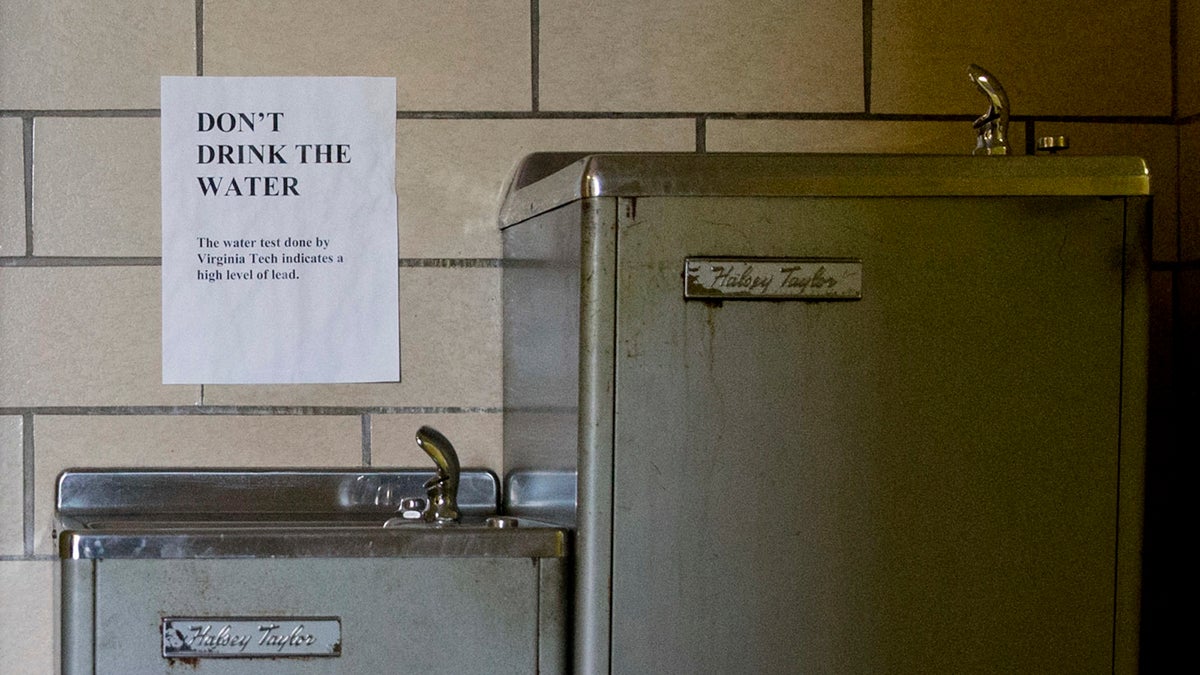Harrisburg offers ambitious proposals to minimize lead exposure in Pa. cities

In the wake of the water crisis in Flint
Eight laws have been proposed from the House and the Senate over the past two days.
Surrounded by state health officials and fellow lawmakers, Senator Vincent Hughes said, “The only thing good that came out of the lead crisis in Flint, Mich., is a renewed, intense effort from states around the country to attempt to address what’s going on with lead in their respective communities.”
Pennsylvania is no exception. The state House of Representatives held a bipartisan press conference Tuesday, proposing a package of laws to reduce the lead risk in the commonwealth. On Wednesday morning, the Senate Democratic Caucus did the same.
Senate proposals
The five bills proposed by the Senate Democratic Caucus focus mostly on testing buildings for lead paint and lead pipes. Senators Art Haywood and Shirley Kitchen proposed two bills that would require schools and daycares to be tested for lead on a regular basis or before getting a license to operate. The results of lead testing would be posted to the school district website.
Senator Wayne Fontana is sponsoring a bill that would require home buyers to be given the option to test the water in the home for lead. EPA water testing regulations only measure whether the anti-corrosive plan is working, not whether each home is safe from lead-contaminated water. The only way to be sure that pipes aren’t leaching lead into the water is to test your own home individually.
As we’ve reported, funding for lead abatement in Pennsylvania has been cut significantly in recent years. Homeowners who discover a lead hazard in their home are often left to remediate it at their own expense. Lead remediation can cost well over $10,000, and considering lead poisoning predominantly affects low-income families, that can be an unmanageable burden. Senator Vincent Hughes has proposed creating a lead abatement “Super Fund” that could help schools, daycares and homeowners with the cost of lead remediation.
But before any of those bills end up on the floor of the Senate, Senator John Yudichak proposed creating a task force that would provide information about the lead hazard in Pennsylvania.
In a press conference on Wednesday, Yudichak said they would “work with the Department of Health and DEP and all the stakeholders involved to put together a task force, so we can study the issue, in terms of our housing stock, our schools, our daycare centers. We can come up with best practices recommendations to remediate lead.”
House proposals
The state representatives who spoke Tuesday about their own package of lead-related laws were a more bipartisan group than the senators. But the goal seemed to be the same: get a clearer picture of the lead hazard in Pennsylvania.
Representative Angel Cruz proposed requiring children under the age of six to be tested for elevated lead levels. Unlike some neighboring states, Pennsylvania doesn’t require children to be tested. In 2014, only 14 percent of children under the age of seven had their lead levels tested.
The state Department of Health has expressed support for universal testing. In an interview last week, deputy director Dr. Loren Robinson said universal testing would be feasible to roll-out and pay for.
“I don’t think that would cost a lot of money,” said Robinson. “Lead testing is covered by medical assistance and private insurance, and for the most part, pediatricians are seeing those kids at age one and two already.”
Cruz also proposed amending the EPA’s Safe Drinking Water Act for Pennsylvania to increase the frequency of testing, even after a water system has passed the lead test.
“By increasing the testing of all these water sample sites, we can identify and evaluate the levels of lead and fix the problems that devastate our community,” said Cruz.
A group of Lehigh Valley legislators, led by Rep. Michael Schlossberg, are also developing legislation that would require a lead inspection every time a rental property is handed over to a new tenant.
“They have to be given an EPA pamphlet about the effect of lead in the home, and be given the result of any lead testing before they sign any lease,” said Schlossberg. “We know that there is certainly more we would like to do, but…this was a good balance of making sure tenants have information about where they choose to live.”
Where’s the money?
Currently, Pennsylvania spends $2 million a year on a lead information hotline and a team of community health nurses that monitor children with elevated blood lead levels. That’s less than neighboring states, and everyone is struggling with federal funding cuts over the last few years.
How does Pennsylvania plan to pay for these ambitious proposals? Hughes says, in the wake of Flint, now is the time to start asking for more funding.
“My hope is there will now be federal, state and local investment around resources to deal with the lead problem,” said Hughes. “If we need to look at creating additional funding at the state level, we are going to look at that. We’ll work with the congressional delegation across the state and in the U.S. Senate about marshaling resources at the federal level.”
These proposals indicate a renewed interest in the lead issue in Pennsylvania. Perhaps that will come with renewed funding as well. Hughes says the senate Democrats plan to meet with Republicans in coming days to get their support as well.
Senator Art Haywood visited Flint three weeks ago, as part of a family trip to Ohio. He says the crisis there has made him realize Pennsylvania can’t wait to act.
“The cost of doing nothing far exceeds the cost of action.”
WHYY is your source for fact-based, in-depth journalism and information. As a nonprofit organization, we rely on financial support from readers like you. Please give today.


